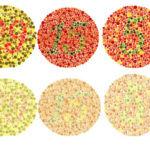What Are Cavities??
Cavities, also known as dental caries or cavities, is a condition where there is damage to the tooth structure caused by demineralization and destruction of tooth enamel by acids produced from bacterial plaque. Here are some important points about cavities:
- Reason:
- plaque bacteria: Plaque is a sticky layer that forms on teeth and contains bacteria. When you consume sweet foods or drinks, Bacteria in plaque produce acids that can damage tooth enamel.
- Poor oral hygiene: Not brushing or flossing regularly can cause plaque build-up and tooth decay.
- Diet high in sugar and carbohydrates: Foods and drinks that are high in sugar and carbohydrates can increase the risk of cavities because they provide food for acid-producing bacteria.
- Symptoms:
- Pain or discomfort in the teeth, especially when consuming sweet foods or drinks, hot, or cold.
- Brown stain, black, or white on the surface of the teeth.
- Visible holes in the teeth.
- Bad breath or bad taste in the mouth.
- Diagnosis:
- Visual examination by a dentist.
- Dental X-rays to see damage inside the teeth or between the teeth that is not visible to the naked eye.
- Treatment:
- Dental fillings: The dentist will remove the damaged part of the tooth and fill the hole with a filling material such as composite resin, amalgam, or porcelain.
- Crown: If the damage is serious, The dentist may cover the tooth with a crown (crown) to protect him.
- Root canal treatment (root canal): If the damage reaches the tooth pulp (The inside of the tooth contains nerves and blood vessels), Root canal treatment may be needed to save the tooth.
- Tooth extraction: If the tooth can no longer be saved, may need to be removed.
- Prevention:
- Brush your teeth at least twice a day with fluoride toothpaste.
- Use dental floss every day.
- Reduce consumption of sweet foods and drinks.
- Routinely check your teeth with a dentist every six months.
By maintaining good oral hygiene and having regular check-ups with the dentist, You can prevent cavities and maintain healthy teeth and mouth.
Cavity Treatment
Treatment for cavities depends on the severity of the damage and the location of the affected tooth. The following are various commonly used treatment methods:
- Fluoride Treatment:
- For the early stages of tooth decay, Fluoride treatments can help restore damaged tooth enamel. Fluoride can be applied in gel form, Therefore, or varnish by a dentist.
- Dental fillings (Fillings):
- If the cavity has grown further, The dentist will clean the damaged tooth and fill it with a filling material such as composite resin, amalgam, porcelain, or gold.
- Dental Crowns (Crowns):
- For more severe damage, dental crowns may be required. This process involves the removal of the damaged portion of the tooth and the installation of a custom-made crown to cover the entire surface of the remaining tooth, protect it and restore its function and appearance.
- Root Canal Treatment (Root Canal):
- If the damage has reached the tooth pulp (The inside of the tooth contains nerves and blood vessels), Root canal treatment may be necessary. This process involves the removal of infected or dead pulp, cleaning root canals, and then fill and close it.
- Tooth Extraction (Tooth Extraction):
- If the tooth is very damaged and cannot be repaired, may need to be removed. After removal, Missing teeth can be replaced with implants, dental bridge (bridge), or dentures (denture) to maintain dental function and aesthetics.
- Painkillers:
- To overcome the pain caused by cavities, Pain relievers such as acetaminophen or ibuprofen can be used temporarily before receiving treatment from a dentist.
Cavity Prevention
Prevention is better than medication. Here are some steps you can take to prevent tooth decay:
- Good Dental Hygiene: Brush your teeth at least twice a day with fluoride toothpaste and floss daily.
- Healthy Eating Patterns: Reduce the consumption of sugary and high-carbohydrate foods and drinks.
- Routine Checkup with the Dentist: Have regular dental checkups every six months to detect problems early.
- Using Fluoride Mouthwash: To provide additional protection against caries.
- Then Gigi: The dentist can apply sealant to the molars to prevent the formation of holes on the surface of the teeth that are difficult to reach with a toothbrush.
With proper care and good preventive habits, Dental and oral health can be maintained properly.
Flight Attendant Dental Requirements
Becoming a flight attendant often involves a number of requirements regarding physical appearance, including dental health. Below are some general dental requirements that may apply to flight attendants:
- Good Dental Health:
- Teeth must be healthy with no serious health problems such as untreated cavities, gum disease, or infection.
- Neat Teeth:
- Straight and aligned teeth are often desired because an attractive appearance is an important part of this profession.
- Some airlines may be more strict about this than others.
- Clean and White Teeth:
- Flight attendants are expected to have clean and white teeth as part of a neat and pleasant professional appearance.
- No Bad Breath:
- Flight attendants must maintain good oral hygiene to avoid bad breath, because they interact closely with passengers.
- Dentures or Fillings:
- Dentures or fillings should look natural and not disturb your appearance.
- Implants, crown, or a well-executed bridge is generally accepted.
- No Visible Braces:
- Some airlines may allow braces, while others may not. Clear braces such as Invisalign are preferred if necessary.
In addition to dental related requirements, There are also other general requirements that prospective flight attendants usually have to fulfill:
- Height and Weight: Must be proportionate and in accordance with airline standards.
- Good Vision: Required, with or without correction.
- Overall Health: Must have good physical health.
- Communication Ability: Must have good communication skills.
- Neat and Attractive Appearance: Must maintain a professional and attractive appearance.
However, It is important to note that these requirements may vary from airline to airline, so it is always advisable to check the specific requirements of the airline you wish to apply for.
Can Cavities Become a Flight Attendant??
Cavities do not automatically disqualify someone from being a flight attendant, but there are some considerations that need to be noted:
- Dental Health and Hygiene:
- Airlines generally expect flight attendants to have good dental health. Cavities can indicate a larger dental health problem and can become a cause for concern if not treated.
- Professional Appearance:
- A neat and attractive appearance is an important part of a flight attendant's job. Cavities can affect your appearance and may need to be repaired to meet airline appearance standards.
- Oral Health and Communication Ability:
- Flight attendants often interact closely with passengers, and poor oral health can cause bad breath or discomfort, which can affect interactions with passengers.

Actions that can be taken
If you have cavities but want to become a flight attendant, here are some steps you can take:
- Visit the Dentist:
- Have your teeth checked by a dentist and get treatment for cavities. This can include fillings, root canal treatment, or other actions necessary to improve and maintain dental health.
- Aesthetic Treatment:
- If there are aesthetic problems with your teeth, consider treatments such as veneers or crowns to improve the appearance of your teeth.
- Routine Dental Care:
- After the cavity is treated, Make sure to maintain good oral hygiene by brushing your teeth twice a day, using dental floss, and have regular check-ups with the dentist.
- Follow Airline Requirements:
- Research the specific requirements of the airline you are interested in. Some airlines may have stricter or looser standards regarding dental health and appearance.
By carrying out proper care and maintaining good dental health, You can increase your chances of being accepted as a flight attendant.
Read Also : What is a Flight Attendant?
Flight Attendant School Registration Information : Sister Melia 0857-7272-7722






















Leave a Reply